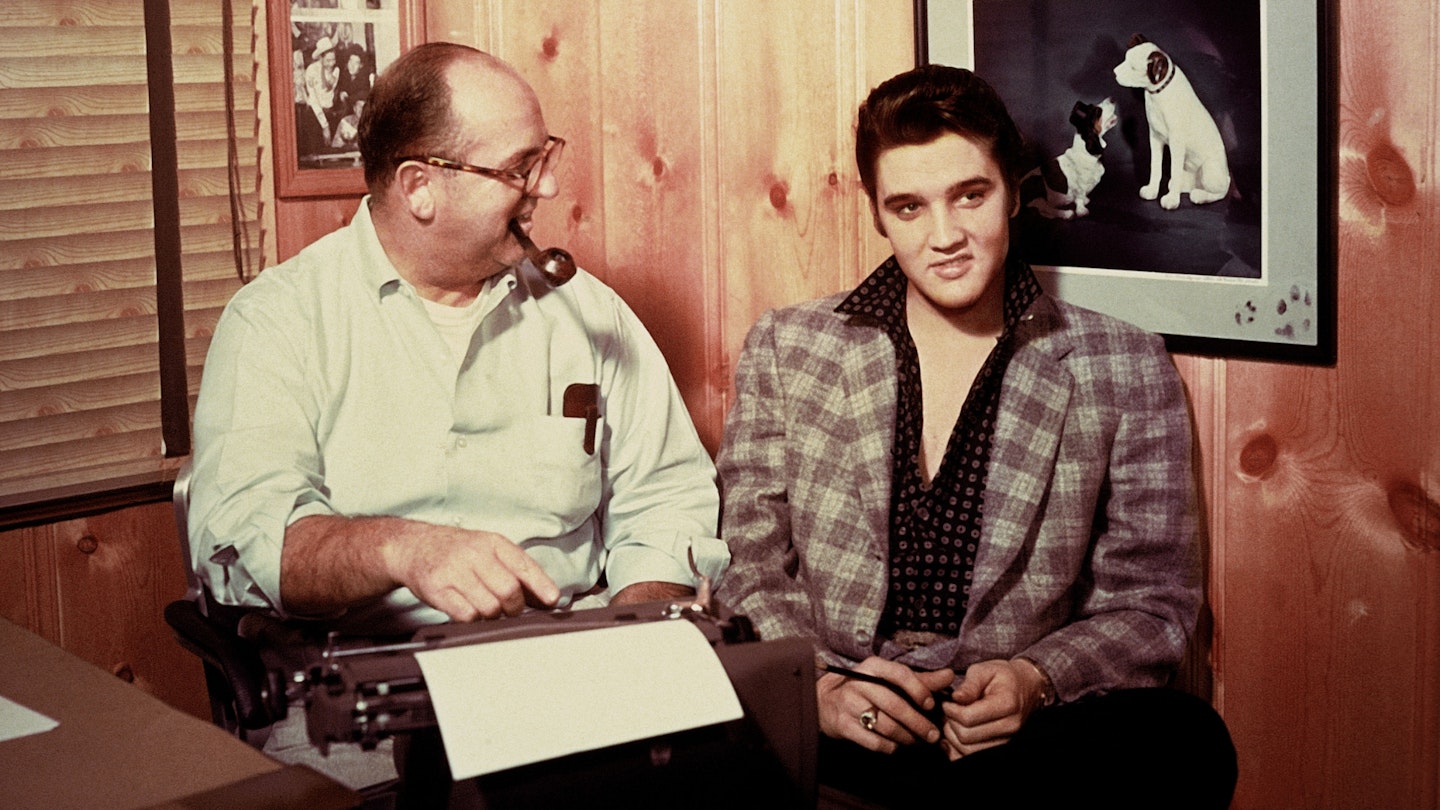Elvis’ mysterious manager Colonel Tom Parker was not everything he appeared to be. He claimed, for example, to have been born in West Virginia in 1909 and to have fallen in with carnival folk at an early age. Many people, including people who worked alongside him for years, believed this story. But it simply wasn’t true.
Parker was indeed born in 1909 but wasn’t from West Virginia and in fact wasn’t even American. What’s more he wasn’t a Colonel nor was he called Tom Parker. What is undeniably true was that he was the Kingmaker, who managed Elvis for 20 years. But what were the dark secrets in his past and how did they impact on Presley’s career?
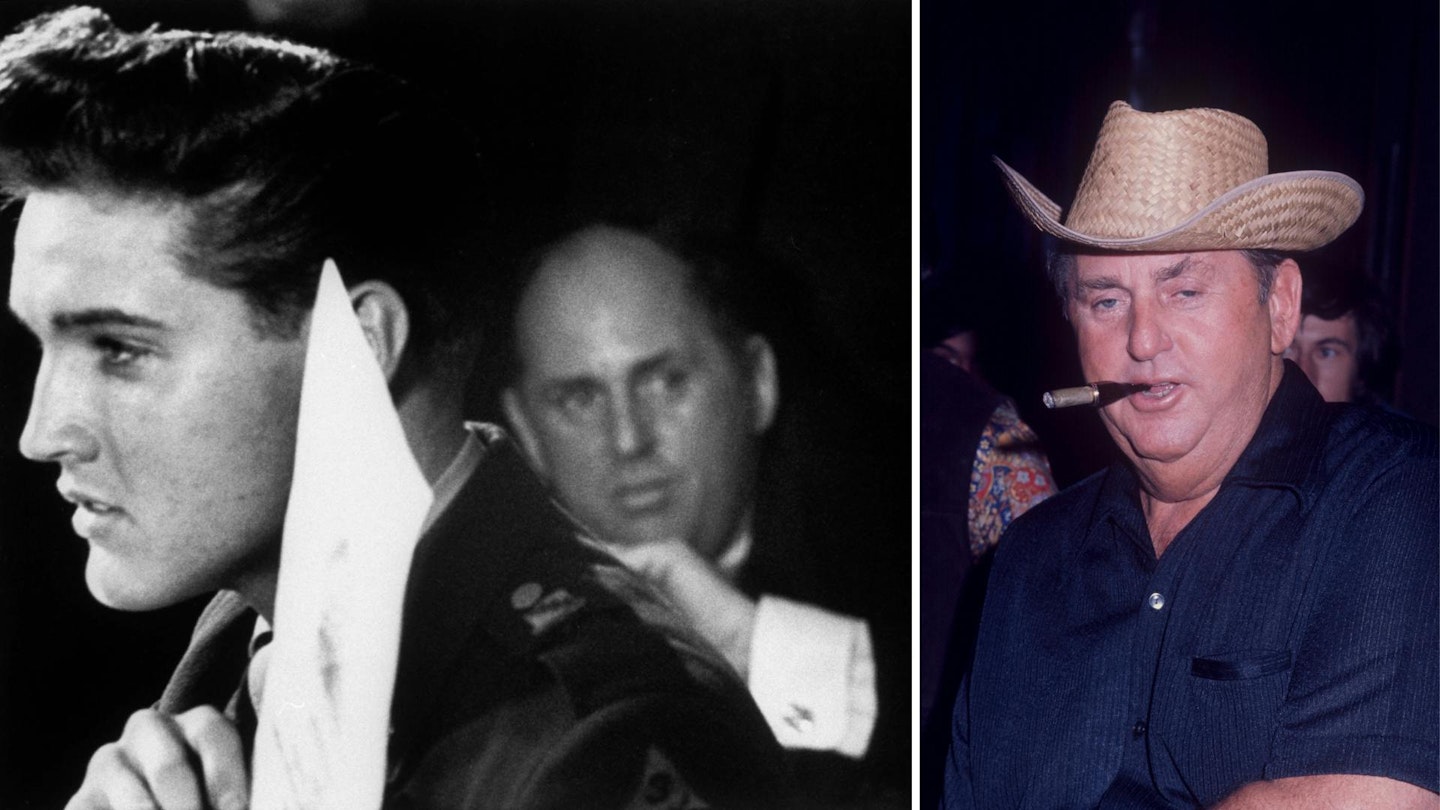
The Colonel first walked into Elvis’ life just as the young singer was poised on the verge of international fame in the mid-Fifties. The timing was not a coincidence. Whatever the Colonel’s failings may have been, he undoubtedly played a big role in establishing Elvis as a star by securing his famous TV appearance on the Ed Sullivan Show in 1956 and later helping him build a film career. As well as Elvis’ career the Colonel also ‘managed’ Elvis’ life to an extent previously not attempted by men in his position. It was he who instilled in Elvis the importance of being courteous and obliging when working. This was not for any profound moral reason: the Colonel in fact (wrongly) expected Elvis’ fame to be short-lived and simply wanted him to behave well to ensure he made them both as much money as possible in the meantime.
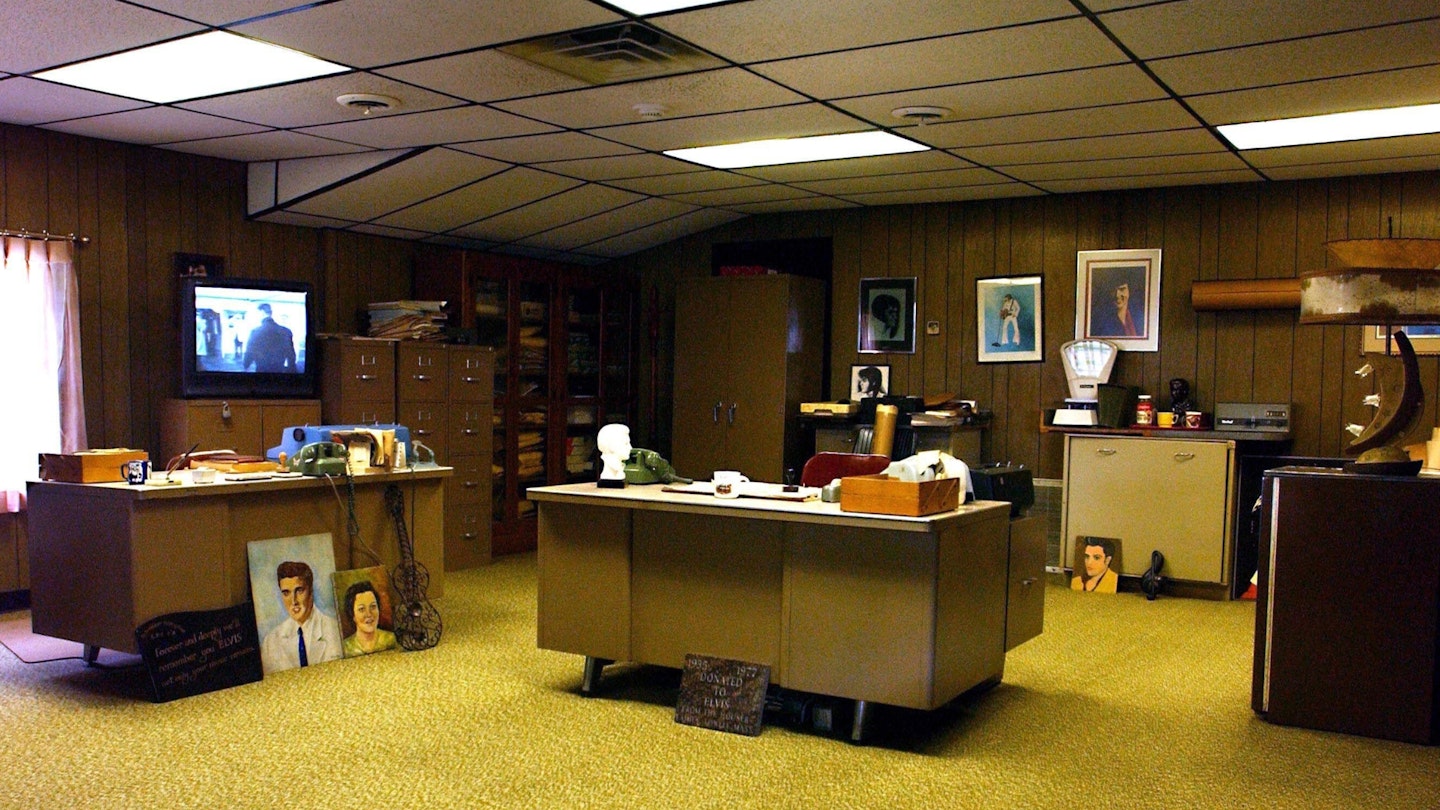
When Elvis was drafted into the Army at the height of his fame in 1958, the Colonel maximised the publicity opportunities ensuring events such as the shaving of the singer’s famous hairstyle were witnessed by millions of people around the world.
When Elvis left the Army in 1960 a Dutch woman named Dankers-van Kuijk suddenly recognised the overweight figure pictured standing next to Elvis in a magazine article she was reading in the Netherlands. Could it be her long-lost brother?
Colonel of truth?
It would be years before the full story came out. Indeed, to some extent it never has. It was already known by some of his colleagues, for example, that ‘Colonel’ was an honorary title given to him by Jimmie Davis (the author of the song You Are My Sunshine) as a thank you for Tom Parker’s help getting him elected Governor of Louisiana in the Forties.
But that was only the start of it. “Remain a mystery,” had been the Colonel’s advice to the young Elvis in his early years. He wanted the singer to maintain a certain mystique. But the Colonel kept the biggest mystery to himself.
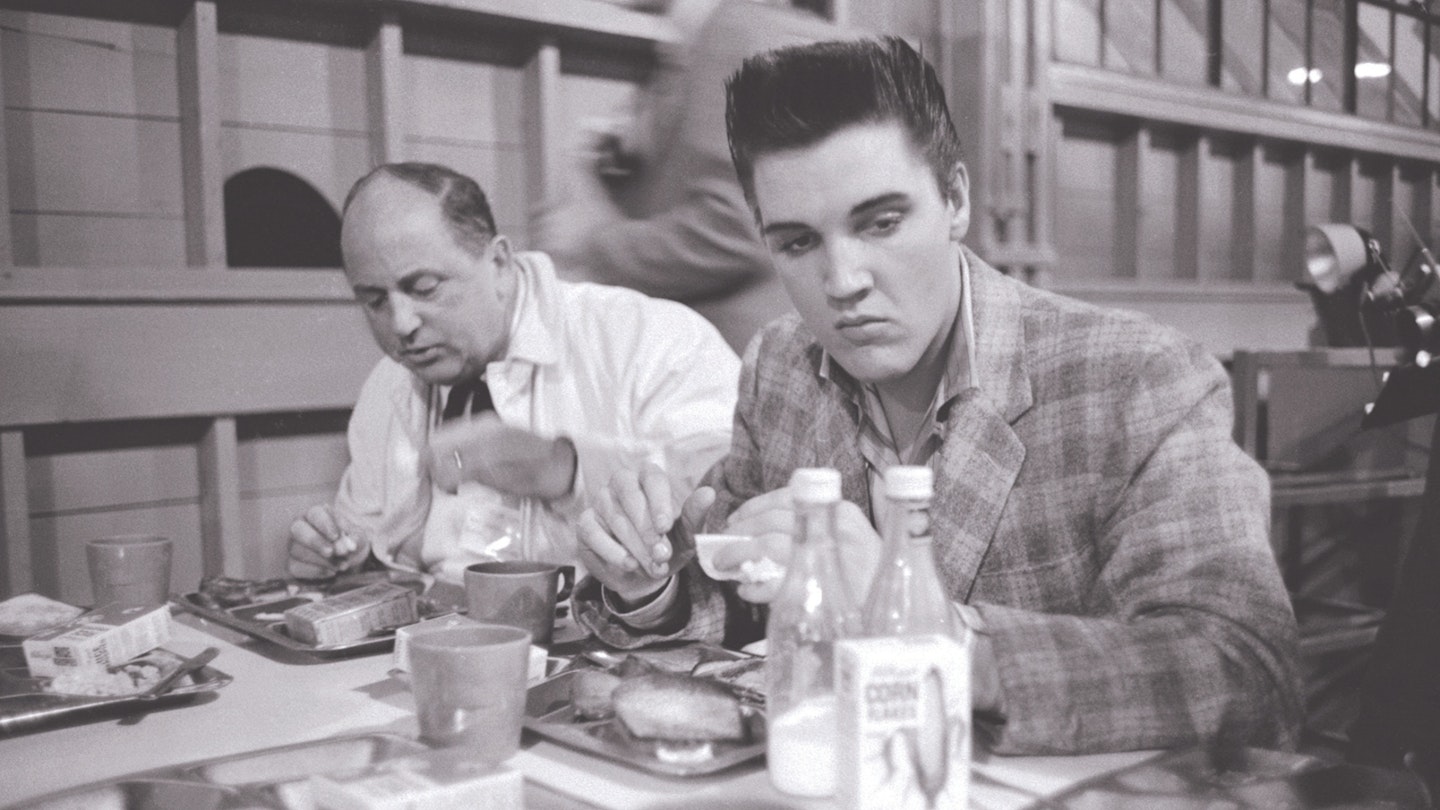
Suspicious mind
He had in fact been born with the name Andreas van Kuijk in Breda in the Netherlands, the seventh son of delivery driver and his wife. He went to the US rather suddenly when he was around 20. He appears never to have had a US passport, was never a naturalised US citizen and was effectively an illegal immigrant. This fact explains one of the enduring mysteries of Elvis Presley’s career. Why the Colonel had turned down dozens of offers worth millions of dollars, to have his famous client tour the world. His manager’s fear that if his illegal status were discovered he might not be allowed to return to the US, could well have been the reason. Elvis actually only played three concerts on foreign soil (in Canada) and Parker chose not to travel with him.
So why did the Colonel not resolve the issue of his illegal status earlier? The 1940 Alien Registration Act of 1940 for example, had effectively granted illegal immigrants an amnesty to become US citizens. But the Colonel declined this opportunity. Later on, again, he was influential enough by the Sixties to have obtained US citizenship had he really wanted to. Why didn’t he?
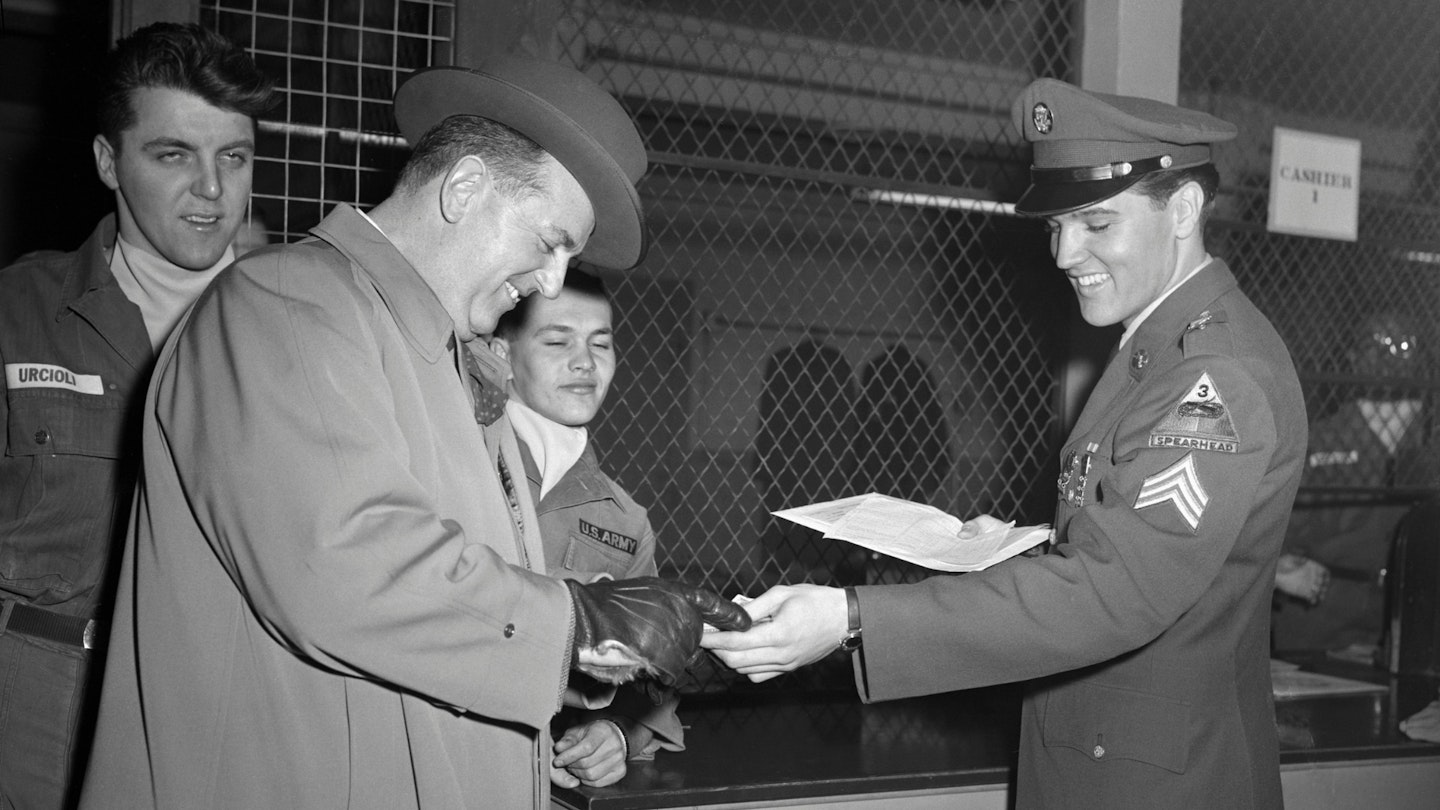
Perhaps he feared exposure of his own inglorious military career. He spent several months in military prison for desertion in 1932 and seems to have suffered some sort of psychotic breakdown while inside. He never rose above the rank of private and deliberately ate to excess to ensure he was too fat to be eligible to fight.
Even worse, some have even suggested the Colonel was behind the murder of a greengrocer’s wife back in Breda: something which would explain his sudden and hasty retreat from his homeland in 1929. This has never been proven, however.
Caught in a trap
In the end, Colonel Tom Parker lived more than twice as long as Elvis, dying in Las Vegas at the age of 87 in 1997.
“You are like a son to me and I will always love you,” he used to say to Elvis. History has tended to judge the Colonel less kindly, many feeling he took advantage of the singer’s sense of loyalty to exploit a talent he never fully appreciated himself.
Certainly, Parker made many unwise decisions, notably selling off Elvis’ back catalogue (which would later prove extremely profitable) in the Seventies.
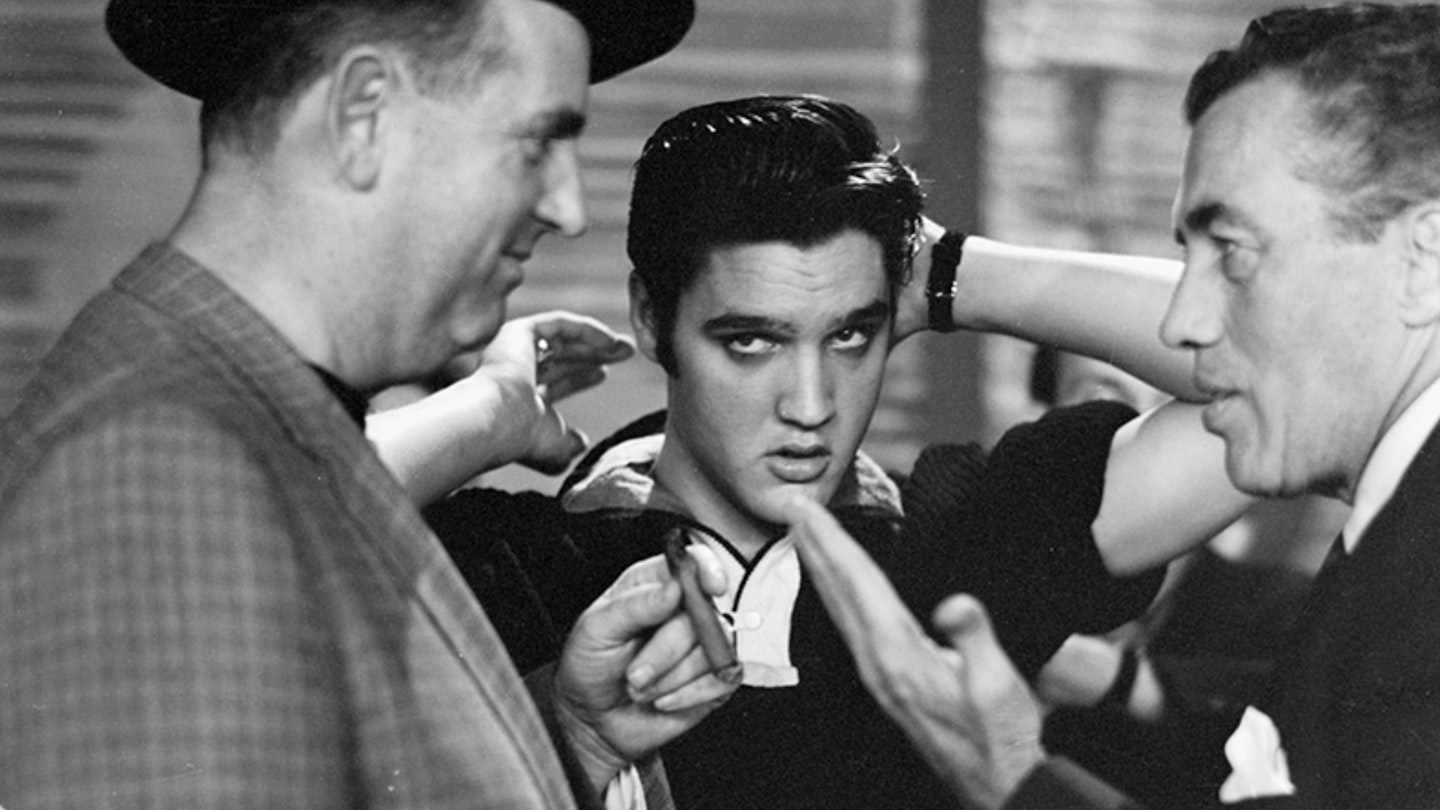
Parker was also unable to prevent Elvis’ slide into drug addiction in his final years, though he certainly didn’t encourage it either. Parker himself wasted many of his own earnings on gambling.
But ultimately for good or bad, without the man they called The Colonel we would never have had the Elvis Presley we remember today.
Did you know?
At the height of Elvis’ fame, Parker cashed in on anti-Elvis feeling by marketing ‘I hate Elvis’ t-shirts.
Colonel Parker arranged for Elvis to appear three times on The Ed Sullivan Show for a fee of $50,000. For his debut in September 1956 he performed Don’t Be Cruel, Love Me Tender, Ready Teddy and Hound Dog. After his third appearance Sullivan said of Elvis: “This is a real decent, fine boy.”
Asked in 1968, if he took 50 per cent of everything Elvis earned, Parker replied, “No! That’s not true at all. Elvis takes 50 per cent of everything I earn!"
